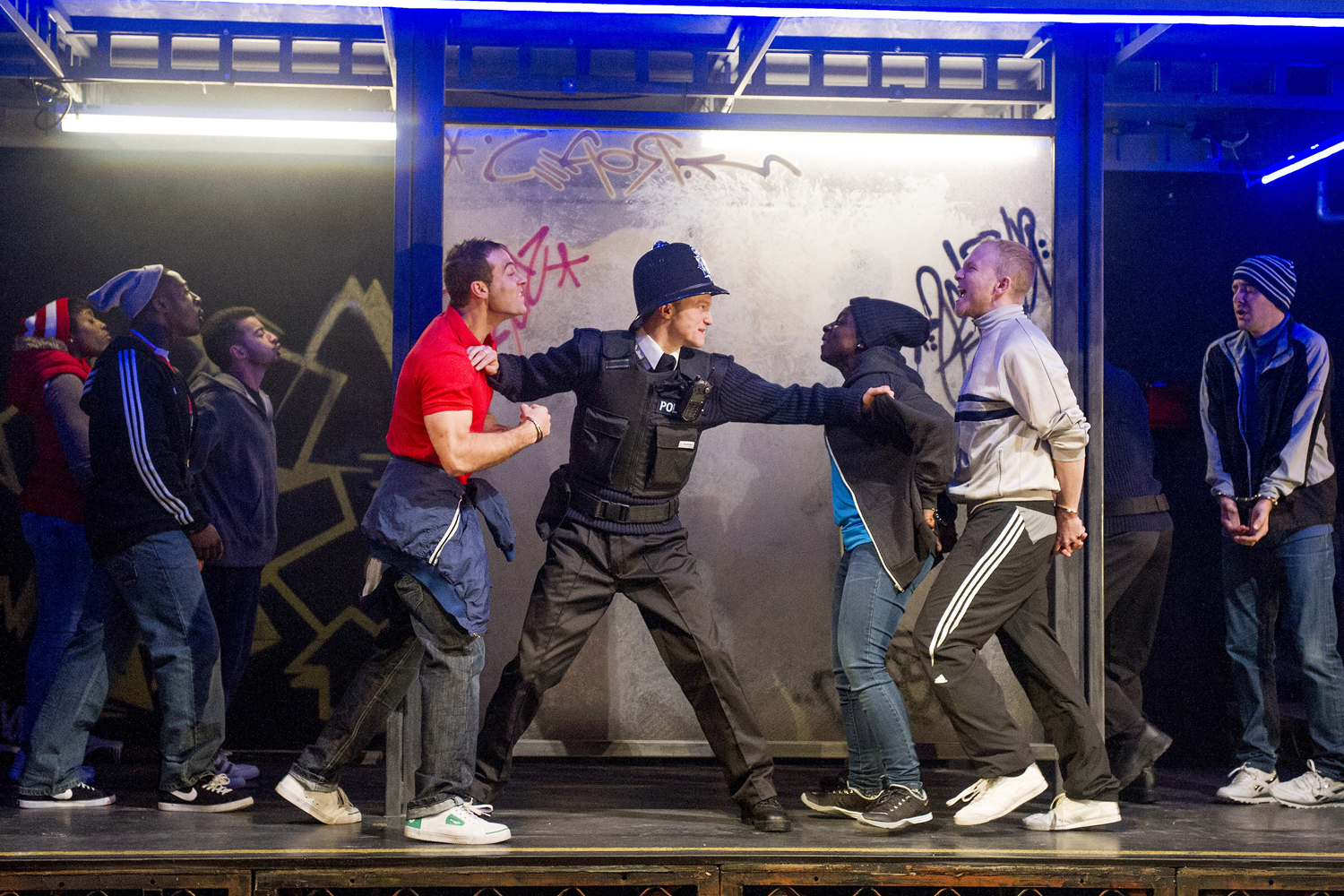Wildefire, Hampstead Theatre, NW3
reviewed for The Times, 14 November 2014

Strong performances can’t hide the fact that Roy Williams’s much-vaunted play needs some serious work (Photo credit: Marilyn Kingwill)
Roy Williams’s much-vaunted new play Wildefire is a study of policing and an exercise in disappointment. From his first hit, Clubland, an all-too-honest comedy of black masculinity, to the more recent Sucker Punch, set in a boxing ring, it’s been clear that Williams has a knack for turning our class and race assumptions on their heads with unconventional candour and a knack for dialogue.
The social realism is still there in this tale of a good policewoman gone bad, as is the snappy banter, but as we canter through our heroine’s radical personality change, plausibility leaps out the window. It’s a colossal waste of an opportunity because if there’s one thing of which Williams does convince us, it’s the urgency of our policing problem.
Lorraine Stanley is Gail Wilde, aka Wildefire, an enthusiastic transfer to the Met straight from leafy Hendon. In our cynical age there’s something refreshing in Williams’s evident conviction that most coppers try hard to do the right thing, a necessary corrective for the post-Macpherson generation. We even open with a recitation of Sir Robert Peel’s Nine Principles of Policing, the Met’s answer to the Hippocratic Oath, which, with its principle of policing by consent, is a startling reminder of just how liberal British traditions already were by 1829.
But Wilde’s decline and fall stretches all bounds of credibility. One moment she’s our ethicist-in-chief, unwaveringly befriending a recalcitrant victim of domestic violence (an affecting Tara Hodge) and reporting her colleagues’ violence with all the naivety of a rube. One tragic incident later she’s popping pills, dismissing victims and beating up her husband. Clearly she’s become one of the boys; in an all too-obvious gender swap, it’s she who shames her partner after an ill-advised one-night stand. Yet this is all too unsubtle to tell us much about feminism or about people.
Little of this is Stanley’s fault. Her relationships are chronically underwritten. There are glimpses of strong interpretations from the cast, especially Sharlene Whyte and Ricky Champ. Maria Aberg’s well-funded production distracts with high-tech wizzes and lyrical crowd movement (choreographed by Ayse Tashkiran), but Williams’s new text needs serious development.






